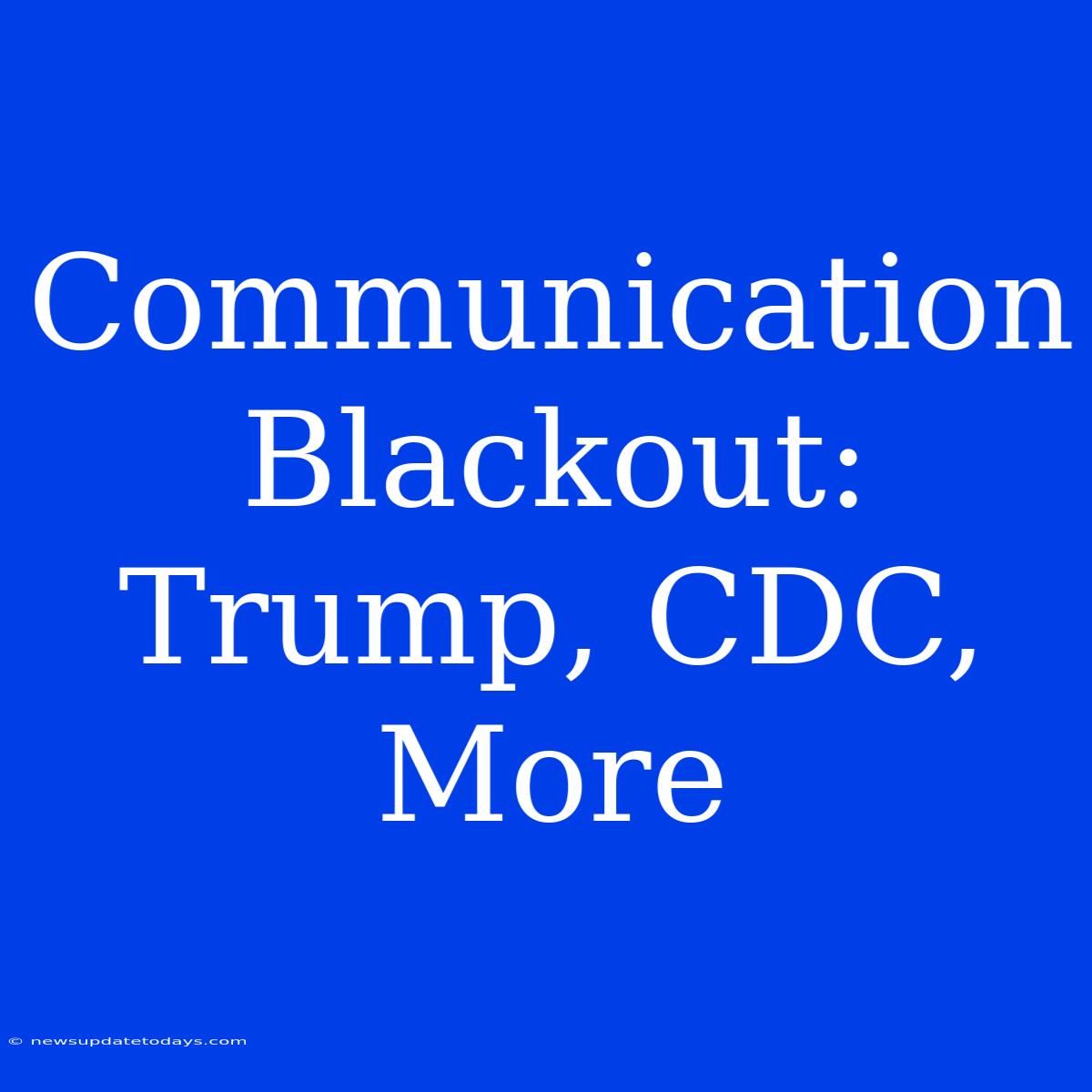Communication Blackouts: Trump, the CDC, and the Dangers of Silenced Voices
Communication blackouts, the sudden and often inexplicable silencing of vital information flows, can have devastating consequences. From impacting public health to undermining democratic processes, these breakdowns erode trust and hinder effective responses to crises. This article examines several high-profile examples, focusing on the Trump administration and the Centers for Disease Control and Prevention (CDC), to illustrate the far-reaching implications of suppressing crucial communication.
The Trump Administration: A Case Study in Controlled Messaging
The Trump administration's approach to communication was often characterized by a deliberate attempt to control the narrative, frequently resulting in information blackouts. This involved:
-
Suppression of dissenting voices: Experts and officials who contradicted the President's statements faced silencing, reassignment, or even dismissal. This created an echo chamber where contradictory information was marginalized, hindering objective analysis and informed decision-making.
-
Disinformation and misinformation campaigns: The administration actively engaged in spreading false or misleading information, often through social media and press briefings. This undermined public trust in official sources and created confusion, especially during critical periods like the COVID-19 pandemic.
-
Restricting access to information: Journalists and researchers faced difficulties accessing information, hindering their ability to report accurately and hold the administration accountable. This lack of transparency fostered suspicion and fueled conspiracy theories.
The consequences of these communication blackouts were substantial. Public health messaging was muddied, leading to inconsistent responses to crises. The erosion of trust in institutions damaged the credibility of government and undermined public confidence.
The CDC: Navigating Political Interference
The CDC, a vital public health agency, also faced challenges during the Trump administration. While not experiencing a complete blackout, its communication was significantly impacted by political interference:
-
Muzzling of scientists: Scientists at the CDC reportedly faced pressure to alter reports and presentations to align with the administration's narrative. This compromised the agency's ability to provide unbiased, scientifically-sound information to the public.
-
Delayed or suppressed reports: Crucial public health reports and warnings were sometimes delayed or suppressed, potentially hindering timely responses to outbreaks and public health emergencies.
-
Undermining public trust: The politicization of the CDC's communication damaged its credibility and reduced public confidence in its ability to provide accurate and reliable information.
The impact of these issues on public health cannot be overstated. Delayed or inaccurate information hindered effective responses to the COVID-19 pandemic, contributing to increased infections and mortality rates.
The Broader Implications of Communication Blackouts
The examples of the Trump administration and the CDC highlight the broader dangers of communication blackouts. These events underscore the importance of:
-
Transparency and accountability: Open and transparent communication is crucial for building public trust and ensuring effective governance.
-
Independent expertise: Decisions should be based on scientific evidence and expert advice, not political considerations.
-
Protection of whistleblowers: Individuals who expose wrongdoing should be protected from retaliation.
-
Media literacy: Citizens need to be equipped to critically evaluate information and distinguish between reliable and unreliable sources.
Communication blackouts are not just inconvenient; they are dangerous. By understanding the consequences of silencing vital information, we can work towards creating a more informed and resilient society. The experiences of the Trump administration and the CDC serve as stark reminders of the importance of safeguarding open and honest communication in all spheres of public life.

